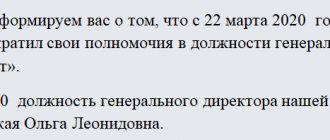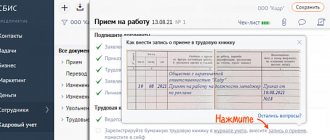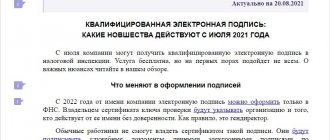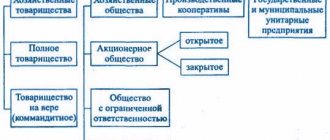The General Director carries out general management of the organization. In fact, he is endowed with greater powers than any other representative of the company's management system. This is one of the most responsible positions. Therefore, especially serious demands are placed on its applicants regarding both their personal qualities and the knowledge and skills that they possess. For more information about what is within the competence of the general director, as well as what rights and responsibilities he has, read the article.
What are the requirements for applicants for the position of General Director?
It is important for a person planning to take the position of general director to understand that especially high demands are placed on such applicants. This is due to the fact that the position involves great responsibility.
So, when making a decision to appoint an applicant as general director, his compliance with the following points must be checked:
- Availability of a diploma of higher education (usually we are talking about economics and law universities, but technical education corresponding to the specifics of the company’s work is also acceptable);
- Experience in a managerial position (usually at least two years);
- Knowledge and practical skills in the field of operation of the company;
- Orientation in the basic laws and acts that contain norms relating to the functioning of the organization (both general and specific, related to a specific area of production or type of activity);
- Fluency in office equipment, primarily a personal computer.
A complete list of the functions of the CEO
A person applying for the position of general director should have an idea of what functions are usually assigned to this official:
- Monitoring compliance with legal regulations during the operation of the company;
- Management of the production and economic life of the organization in compliance with the provisions of the Charter;
- Implementation of organizational measures, the purpose of which is to achieve effective and coordinated work of all structural units of the company;
- Ensuring the execution of decisions made by the meeting of shareholders, the board of directors or other collegial body of the company.
List of job responsibilities of the CEO
The responsibilities of a director are usually specified in his job description. It is important to study this document carefully before assuming the rights of a general manager. The specific list of items may vary depending on the area of operation of the company and the types of its activities. But we can highlight some points common to all cases:
- Control over the production, economic and financial activities of the company;
- Organization of coordinated functioning of all departments and divisions of an economic entity, ensuring the achievement of maximum results;
- Organization of activities in the field of formation of an effective accounting system at the enterprise, the result of these actions should be the submission of reliable reports to regulatory government agencies and company managers (for them to make adequate decisions);
- Control over the timely and adequate preparation of the company’s staffing table, approval of job descriptions for the company’s personnel;
- Formation of the company’s personnel, which would include qualified specialists performing their work with high quality;
- Providing the company with all the material resources necessary for its work;
- Organization of events whose purpose is to ensure the safety of the organization’s property on its balance sheet;
- If it is necessary to defend the truth in court, the general director is obliged to ensure adequate protection of the interests of the business entity;
- Monitoring the proper implementation of current laws by subordinates in the process of performing their labor duties;
- Organization of proper execution of decisions adopted by the meeting of shareholders, board of directors or other collegial body of the company of the same purpose;
- Timely provision of subordinate managers with up-to-date and reliable information about the state of affairs in the company (this information is necessary for managers to generate competent decisions).
Job description for the specialty “Enterprise Director”
Job description of the director of the enterprisezip
You can download the job description for a company director for free . Job responsibilities of the director of the enterprise
I approve
_____________________________ (Last name, initials)
(name of organization, its ________________________________
organizational and legal form) (director; other person authorized
approve job description)
00.00.201_g.
m.p.
JOB DESCRIPTION
DIRECTOR OF THE ENTERPRISE
——————————————————————-
(name of institution)
00.00.201_g. №00
I. General provisions
1.1. This job description establishes the rights, responsibilities and job responsibilities of the director of the enterprise _____________________________ (hereinafter referred to as the “enterprise”).
Name of institution
1.2. The director of the enterprise belongs to the category of managers.
1.3. A person appointed to the position of director of an enterprise must have a professional (technical or engineering-economic) education and at least 5 years of experience in management positions in the industry relevant to the enterprise.
1.4. Appointment to the position of director of an enterprise and dismissal from it is carried out on the basis of a decision of the general meeting of founders or another body of the enterprise.
1.5. The director of the enterprise is accountable to the founders of the enterprise represented by
_________________________________________________________________________
(general meeting of founders, other body of the enterprise)
1.6. If the director of the enterprise is absent, then his duties are temporarily performed by a person appointed in accordance with the established procedure, who is responsible for the proper performance of his official duties.
1.7. In his activities, the director of the enterprise is guided by:
- the charter of the enterprise and this job description;
- legislative and regulatory documents regulating the production, economic and financial and economic activities of the enterprise;
- methodological materials related to the activities of the enterprise;
- labor regulations.
1.8. The director of the enterprise must know:
- profile, specialization and features of the enterprise structure;
- prospects for technical, economic and social development of the industry and enterprise;
- production capacity and human resources of the enterprise;
- production technology of the enterprise's products;
- the procedure for drawing up and agreeing on business plans for the production, economic and financial and economic activities of the enterprise;
- market methods of business and enterprise management;
- legislative and regulatory legal acts regulating the production, economic and financial-economic activities of the enterprise, resolutions of federal, regional and local government authorities and management, defining priority directions for the development of the economy and the relevant industry;
- methodological and regulatory materials of other bodies relating to the activities of the enterprise;
- a system of economic indicators that allow an enterprise to determine its position in the market and develop programs for entering new markets;
- scientific and technical achievements and best practices in the relevant industry;
- management of the economy and finances of the enterprise, organization of production and labor;
- the procedure for developing and concluding sectoral tariff agreements, collective agreements and regulating social and labor relations;
- labor protection rules and regulations;
- the procedure for concluding and executing economic and financial contracts;
- market conditions;
- tax, environmental and labor legislation.
II. Functions
The director of the enterprise is assigned the following functions:
2.1. Monitoring compliance with the law in the activities of all services.
2.2. Carrying out general management of the production, economic and financial and economic activities of the enterprise.
2.3. Organization of interaction between all structural divisions, workshops and production units.
2.4. Ensuring the fulfillment of all obligations assumed by the enterprise, including obligations to budgets of various levels and extra-budgetary funds.
2.5. Creating conditions for the introduction of the latest equipment and technology, progressive forms of management and labor organization.
2.6. Protection of the property interests of the enterprise in court, arbitration, and government bodies.
2.7. Taking measures to ensure healthy and safe working conditions at the enterprise.
III. Job responsibilities
The director of the enterprise performs the following duties:
3.1. Ensures that the enterprise fulfills all obligations to the federal, regional and local budgets, state extra-budgetary social funds, suppliers, customers and creditors, including bank institutions, as well as economic and labor agreements (contracts) and business plans.
3.2. Provides management in accordance with the current legislation on the production, economic and financial-economic activities of the enterprise, bearing full responsibility for the consequences of decisions made, the safety and effective use of the enterprise’s property, as well as the financial and economic results of its activities.
3.3. Organizes the work and effective interaction of all structural divisions, workshops and production units.
3.4. Directs the activities of all structural divisions, workshops and production units towards the development and improvement of production, taking into account social and market priorities, increasing the efficiency of the enterprise, increasing sales volumes and increasing profits, quality and competitiveness of manufactured products, their compliance with international standards in order to conquer domestic and foreign market and meeting the needs of the population for relevant types of domestic products.
3.5. Organizes production and economic activities based on the widespread use of the latest equipment and technology, progressive forms of management and labor organization, scientifically based standards of material, financial and labor costs.
3.6. Organizes the study of market conditions and best practices (domestic and foreign) in order to comprehensively improve the technical level and quality of products (services), the economic efficiency of their production, the rational use of production reserves and the economical use of all types of resources.
3.7. Takes measures:
— to provide the enterprise with qualified personnel;
— on the rational use and development of professional knowledge and experience of personnel;
— to create safe and favorable working conditions for life and health;
— compliance with environmental legislation requirements.
3.8. Provides the right combination of economic and administrative methods of leadership, unity of command and collegiality in discussing and resolving issues of material and moral incentives for increasing production efficiency.
3.9. Ensures the application of the principle of material interest and responsibility of each employee for the work assigned to him and the results of the work of the entire team, payment of wages on time.
3.10. Resolves issues related to the financial, economic and production activities of the enterprise, within the limits of the rights granted to it by law.
3.11. Entrusts the management of certain areas of activity to other officials - deputy directors, heads of production units and branches of enterprises, as well as functional and production divisions.
3.12. Ensures compliance with the rule of law in the activities of the enterprise and the implementation of its economic relations, the use of legal means for financial management and functioning in market conditions, strengthening contractual and financial discipline, regulating social and labor relations, ensuring the investment attractiveness of the enterprise in order to maintain and expand the scale of business activity .
3.13. Together with labor collectives and trade union organizations, based on the principles of social partnership, ensures the development, conclusion and implementation of a collective agreement, compliance with labor and production discipline, promotes the development of labor motivation, initiative and activity of workers and employees of the enterprise.
IV. Rights
The director of the enterprise has the right:
4.1. Make decisions on the disposal of the funds and property of the enterprise in compliance with the requirements of the relevant regulations and the charter of the enterprise.
4.2. Within the limits established by law, determine the scope and procedure for protecting information constituting confidential information.
4.3. Act on behalf of the enterprise, without issuing a power of attorney, to represent the interests of the enterprise in relations with individuals and legal entities, government authorities and management.
4.4. Open a current account, as well as other accounts in banking institutions.
V. Responsibility
The director of the enterprise is responsible:
5.1. In case of causing material damage, within the limits determined by the criminal, civil, and labor legislation of the Russian Federation.
5.2. If an offense is committed in the course of carrying out its activities, within the limits determined by the criminal, civil, administrative legislation of the Russian Federation.
5.3. In case of failure to perform or improper performance of their official duties, which are provided for in this job description, within the limits determined by the labor legislation of the Russian Federation.
Head of structural unit: _____________ __________________
(signature) (surname, initials)
00.00.201_g.
I have read the instructions,
one copy received: _____________ __________________
(signature) (surname, initials)
00.00.20__
What rights does the CEO have?
The CEO has an extensive list of rights and powers. Here are the main ones:
- Registration and approval (vising) of documents important for the company’s activities;
- Independent decision-making within one’s competence;
- Conclusion and termination of contracts on behalf of the company (this also applies to employment contracts);
- Approval of important internal documents of the company regulating the main aspects of its activities: Internal regulations, job descriptions and staffing, etc.;
- Carrying out activities related to the safety of the company’s resources (including financial);
- Formation of staff at your own discretion through dismissal and hiring of workers;
- Imposition of sanctions (both disciplinary and material) on subordinates; Of course, such decisions must be regulated by legislative acts;
- Formation of a remuneration system for employees, including the organization of incentives (award or bonus system);
- Setting the agenda for a meeting of the board of directors or meeting of shareholders of the company.
How to bring positions into line with professional standards?
Not every employer is required to strictly follow professional standards.
Want to know the answer to this question? Get free access to K+ and go to the material.
To transition the company to professional standards, a working group is created, whose primary responsibilities include finding out whether all the necessary professional standards have been adopted that can be correlated with the types of professional activities at the enterprise.
To do this, you should compare all the positions listed in the staffing table in terms of the job function performed with already approved professional standards. It is worth deciding which professional standard the description of a particular position may fall under. It may be necessary to study several professional standards that are similar in content in order to choose the one most suitable for the description of the existing position at the enterprise.
To make such a comparison, it is worth first of all paying attention to studying the main purpose of professional activity, which is necessarily given as part of the general information of any professional standard - this can be clearly seen in the layout of the professional standard, approved by order of the Ministry of Labor of the Russian Federation dated April 12, 2013 No. 147n. The description of the goal recorded in the professional standard should be compared with the goal of working in a specific position prescribed in the corresponding job description of the enterprise.
In the layout, you should also look at the information located in the column under the heading “Group of occupations” - it will serve as an additional pointer when searching for a professional standard that matches the job description.
At the same time, it must be borne in mind that the title of the position according to the professional standard may not coincide exactly with the title of the position provided for at the enterprise. Therefore, if a suitable professional standard was not found by its exact name, one should not assume that no suitable professional standard is provided for a position existing in the staffing table.
What responsibility does the CEO have?
The General Director is perhaps the most responsible position in the entire enterprise. A manager of this level is endowed with extensive rights and powers, which also entails many responsibilities. So, the CEO is responsible (that is, may be subject to sanctions in case of violations) for the following points:
- Damage incurred by the company in the course of its operation, if these losses were the result of incorrect actions (or negligent inaction) of the manager during the performance of his official duties;
- Dissemination of information that is a commercial or official secret; such behavior can cause serious damage to the organization and is therefore considered unacceptable and subject to punishment;
- Untimely or dishonest performance of official functions, negligent attitude towards official duties.
The CEO is responsible for the success of the company as a whole. The fate of an economic entity largely depends on its actions and decisions. This is very important to understand for a person who is just about to take office.
Responsibilities of the Financial Director
The block lists the functions of the CFO and the tasks assigned to him by management and owners. After reviewing the list of responsibilities, an experienced finder should analyze the specifics of the business organization and how managers develop it. He can put forward proposals for developing a financial strategy and establishing business processes, then begin implementation.
Main responsibilities:
- outline a strategy that will help increase the value of the company;
- identify, assess and prevent financial risks;
- optimize costs and facilitate cash injections;
- control the preparation of profile reports;
- participate in tax planning;
- manage the processes of management accounting systems;
- establish internal control;
- organize the effective activities of the financial and economic department and accounting department;
- resolve personnel issues within your department (recruitment, management, training of personnel);
- inform top managers and specialists from other departments;
- give advice on financial matters.
Consulting by the financial director with employees from related departments is the key to high-quality operation of business processes. Allows you to achieve financial goals and avoid losses. For example, the CFO can help the marketing department calculate discounts. The commercial department is to determine the size of the installment plan for partners and its feasibility. The production department should choose cost-effective raw materials.
The financial director is not responsible for the work of other departments. Can only supervise issues directly related to the company's financial performance.
What does the CEO's salary consist of?
The great responsibility of the general director and the wide range of his responsibilities also presupposes a decent salary. As a rule, such an employee is one of the highest paid in the company. The specifics of a manager’s earnings are discussed in more detail below.
Minimum CEO salary
The general director is an employee of the enterprise. Accordingly, his earnings are determined in accordance with the same legal standards as the salaries of all working citizens. There are no special rules or regulations for the management team.
Important!
The salary of the general director, as well as the earnings of other personnel, cannot be less than the minimum subsistence level established in the region.
The cost of living is a variable value. At the moment, the federal minimum (that is, mandatory throughout the Russian Federation) is 12,130 rubles. Regions may have their own limits. An important point is that they should not be below the federal level. They can go higher, but they can’t go lower.
For example, in the capital the cost of living is usually set at a higher level. From the beginning of 2022, this is 20,195 rubles (that is, almost half the federal minimum).
The manager's salary increases by a regional coefficient that applies in some territories.
Just like the salary of all employees, the CEO’s salary can consist of salary and allowances.
Bonuses are often used as bonuses. Managers have their own motivation system. Bonuses are awarded for achieving certain performance indicators of the company (their specific list is determined by the characteristics of the area of operation of the enterprise).
Is it possible to hire a part-time CEO while the LLC is not in operation?
There are often situations when a company is already registered and actually exists, but is not yet operating as such. A general director is necessary in such a company - after all, the approval of important documents is within his competence. But the desire to save money is understandable. Therefore, a logical question often arises: can a person in the position of General Director be employed part-time? This would allow significant savings on salaries and related mandatory contributions to the budget.
The legislation on this matter is clear. Article 93 of the Labor Code of the Russian Federation, which regulates the issue of part-time work, contains no restrictions for managers. Accordingly, the general rule applies to them: by agreement of the parties, the general director can be assigned either a part-time working day or a shortened week.
In the case of managers, the first option (part-time) is more preferable. This will eliminate situations in which important documents are signed on the director’s day off as scheduled.
What are the current standards for positions and professions?
In accordance with Art.
57 of the Labor Code of the Russian Federation, a mandatory condition of an employment contract is to indicate the employee’s labor function. It refers to work in a position, specialty, profession, or a certain type of work entrusted to an employee. In Art. 195.1 of the Labor Code of the Russian Federation states that qualifications mean the level of skills/knowledge, work experience and professional skills of an employee. At the same time, a professional standard is a detailed description of the qualifications needed to engage in a specific professional activity. That is, this means that a professional standard is not a description of the characteristics of a position - it is more a set of requirements that applies to a certain type of professional activity.
In this regard, it is not surprising that there may be discrepancies between the names of positions according to professional standards and those specified in the employment contract.
A complete list of currently approved professional standards can be found in the special ConsultantPlus material, having received trial access to the system.
Can the CEO work part-time for another employer?
This point is regulated by Article 276 of the Labor Code of the Russian Federation. The law does not limit the right of the general director to combine the work of a manager with work responsibilities for another employer. However, there is a caveat - such a situation must be approved by the authorized body of the legal entity or the owner of the company’s property.
If there are no objections, then the director can easily be assigned a part-time job and be free to work part-time in another organization.
Accordingly, if the general director is a sole founder, then he does not require any additional permissions.
It is even acceptable (and not uncommon) for situations where the same person is simultaneously the general director of two companies.








